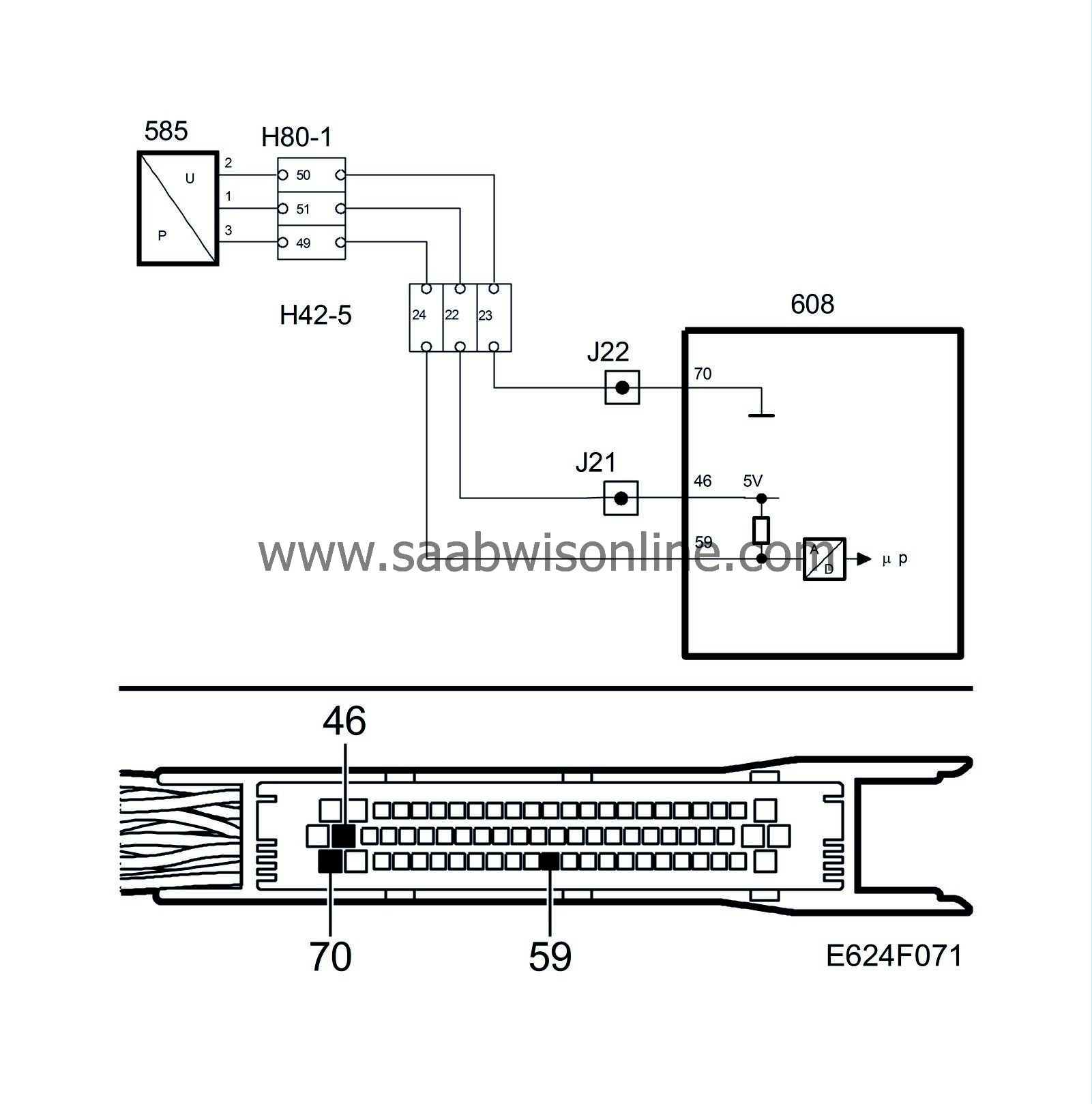P1451
Read the instructions below then
start the fault diagnostic procedure.
Symptom: CHECK ENGINE.
EVAP Tank Pressure Sensor.Performance Problem.

Fault symptoms
On-Board Diagnostics
Type of diagnosis:
|
-
|
Once per driving cycle. Interrupted when fault criteria fulfilled or OK reported. Restarts next driving cycle.
|
Enable criteria:
|
-
|
General conditions for this trouble code: When starting the engine, the atmospheric pressure must exceed 78 kPa and the engine coolant and intake air temperatures must exceed -7°C.
|
|
-
|
Approved transition diagnosis of oxygen sensor 1. Purge active. Idling. Max. one change in status of brake light switch. Purge adaptation higher than -7 %. Car stationary for 8 sec.
The diagnosis will start once the above conditions have been fulfilled. If the diagnosis is interrupted then the speed must exceed 0 on one occasion before it is allowed to restart.
|
Fault criteria:
|
-
|
Tank pressure pulsating at a frequency higher than 5.6 Hz with an amplitude exceeding 0.020 kPa.
|
Dependents:
|
-
|
P0444, P0445, P0501, P0502, P0506, P0507, P1444, P1445, P1576 and P1577.
|
System reaction to a fault:
|
-
|
Integrity diagnosis of purge system blocked.
|
OK report:
|
-
|
Diagnoses for P1451, P1452 and P1453 performed once and fault criteria not fulfilled. Fault criteria for P0452 or P0453 not fulfilled.
|
Fault handling:
(See section
Fault handling III, other emission-related components and functions
for more information.)
Diagnostic help
Fault diagnosis concerns an electrical fault in connecting leads or in the sensor.
Functions in the diagnostic tool related to the fault:
|
•
|
Diagnostic status for the diagnosis.
|
|
•
|
Tank pressure value, unit kPa. The value should be approx. 0 kPa with the filler cap removed. When the car is stationary, the value should be stable.
|
See also description of readings under
"Read Values" menu
for more information.
Checking the wiring
Jiggle the wiring harness at several points and in different directions to detect intermittent breaks and short circuits. Observe the multimeter, diagnostic tool or test lamp during the check.



